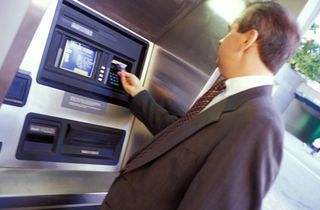Microsoft deserves some blame for the rapidly spreading Web virus
Published:
20 August 2003 y., Wednesday
Microsoft deserves some blame for the rapidly spreading Web virus -- but so do network administrators, ISPs, small businesses, and individual PC users. Compared to the images of sweaty Gothamites trudging across the Brooklyn Bridge in 95-degree heat during the massive power blackout, the MS Blaster worm now seems like a walk in the park.
Still, the latest worm to clog corporate networks and kludge the Net wreaked plenty of havoc in its own right. Internet security companies estimated losses from both downtime and wasted manhours in the hundreds of millions of dollars for U.S. companies. And Blaster-infected machines significantly impacted the Internet. The stream of bogus requests generated by the worm slowed DNS (domain name system) servers that act as the phone directories of the Internet. Compromised computers jammed up networks ranging from BMW in Germany to the Maryland Motor Vehicles Dept.
. Like the Slammer and CodeRed worms before it, Blaster targeted computers running Microsoft Windows 2000 and Windows XP operating systems. The worm carries a small program designed to exploit a chink in Redmond's digital armor and insert a file deep into the operating system in the Windows registry system. The registry is a database where the most basic rules that govern how a Windows machine behaves are stored and categorized.
Once Blaster inhabits the registry, it causes computers to restart without warning and to spew out thousands of connection requests per minute, in search of other machines to infect. The sheer volume of traffic caused enough digital noise to bog down networks.
Šaltinis:
businessweek.com
Copying, publishing, announcing any information from the News.lt portal without written permission of News.lt editorial office is prohibited.
The most popular articles
Software company announced new structure_ of it_s business.
more »
 The Self-Service and Kiosk Association has published its 2009 Self-Service Consumer Survey, a comprehensive report that reveals what consumers like and dislike about self-service technology — and what they want more of.
more »
The Self-Service and Kiosk Association has published its 2009 Self-Service Consumer Survey, a comprehensive report that reveals what consumers like and dislike about self-service technology — and what they want more of.
more »
 Private investors should hold up to 15 percent of their wealth in physical gold, according to a German asset-management company that plans to set up 500 "Gold-To-Go" ATMs in Germany, Switzerland and Austria sometime this year.
more »
Private investors should hold up to 15 percent of their wealth in physical gold, according to a German asset-management company that plans to set up 500 "Gold-To-Go" ATMs in Germany, Switzerland and Austria sometime this year.
more »
 ATM and debit card theft is expected to grow 10 percent to 14 percent this year, according to a survey of financial institutions that was released today.
more »
ATM and debit card theft is expected to grow 10 percent to 14 percent this year, according to a survey of financial institutions that was released today.
more »
 Built from potatoes, steered with carrots and powered by chocolate.
more »
Built from potatoes, steered with carrots and powered by chocolate.
more »
 Students at a Tokyo elementary school are waiting quietly for a "special lecturer" in science class. But when they see "Saya", a robot relief teacher, the kids are pleasantly surprised.
more »
Students at a Tokyo elementary school are waiting quietly for a "special lecturer" in science class. But when they see "Saya", a robot relief teacher, the kids are pleasantly surprised.
more »
 This week - the New York Times announced a deal with e-commerce giant Amazon timed to the release of its latest Kindle e-book device.
more »
This week - the New York Times announced a deal with e-commerce giant Amazon timed to the release of its latest Kindle e-book device.
more »
 Wincor Nixdorf AG and NICE Banking, an independent ATM deployer in South Korea, have partnered to grow a network of ATMs at sites owned by the country's top communications provider, Korea Telecom.
more »
Wincor Nixdorf AG and NICE Banking, an independent ATM deployer in South Korea, have partnered to grow a network of ATMs at sites owned by the country's top communications provider, Korea Telecom.
more »
 “The telecoms package has never been about anything to do with restrictions on the internet,” Malcolm Harbour told us ahead of Parliament's debate Tuesday on the telecoms package, which aims to reform the existing European electronic communications framework.
more »
“The telecoms package has never been about anything to do with restrictions on the internet,” Malcolm Harbour told us ahead of Parliament's debate Tuesday on the telecoms package, which aims to reform the existing European electronic communications framework.
more »
 On 20 April 2009 the Prague Congress Centre will host a ministerial conference Safer Internet for Children, which is organised by the Ministry of the Interior in cooperation with the European Commission.
more »
On 20 April 2009 the Prague Congress Centre will host a ministerial conference Safer Internet for Children, which is organised by the Ministry of the Interior in cooperation with the European Commission.
more »
 Payment card breaches in 2008 led to the most compromises and security breaches of record in the last four years, according to a new report from Verizon Business.
more »
Payment card breaches in 2008 led to the most compromises and security breaches of record in the last four years, according to a new report from Verizon Business.
more »